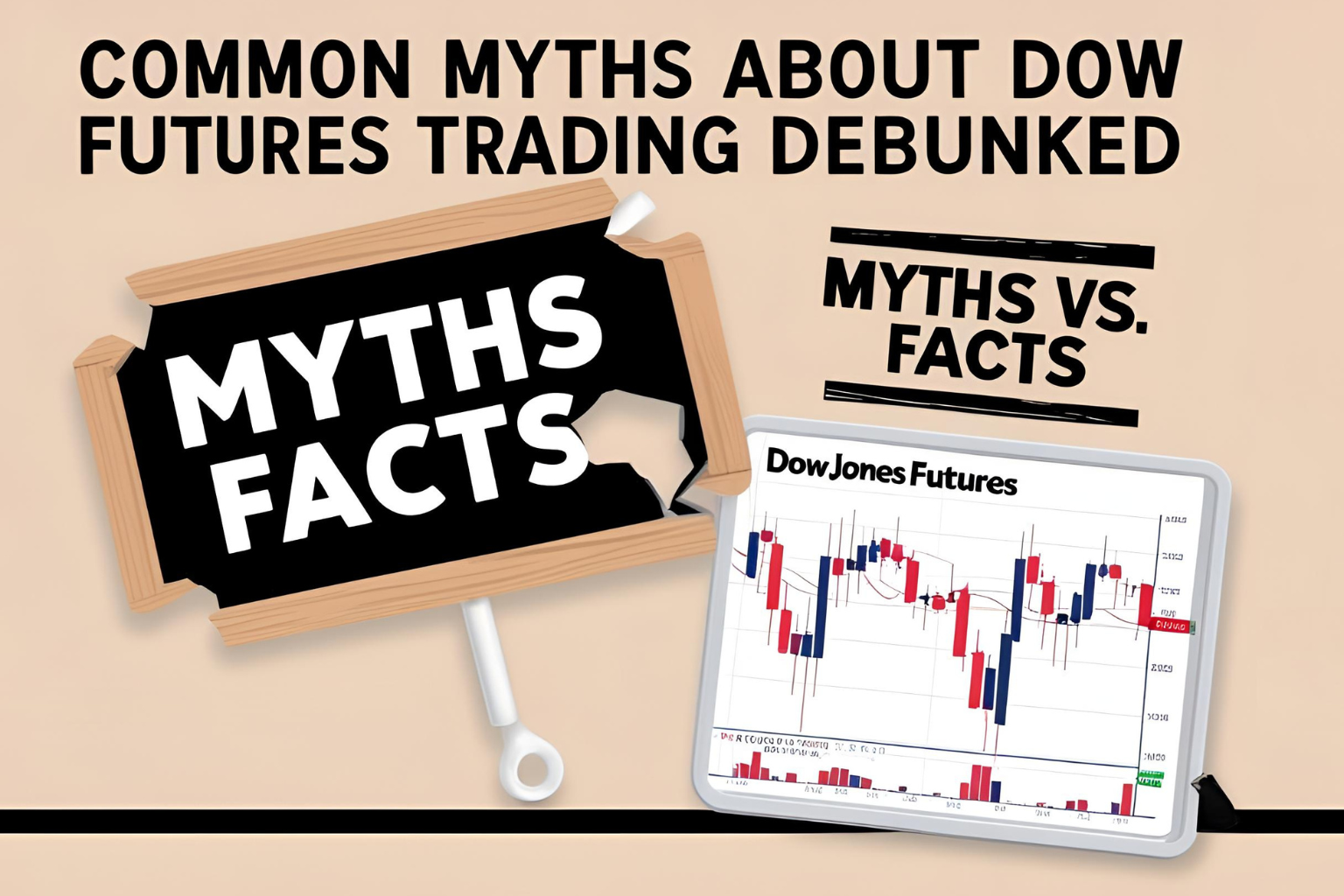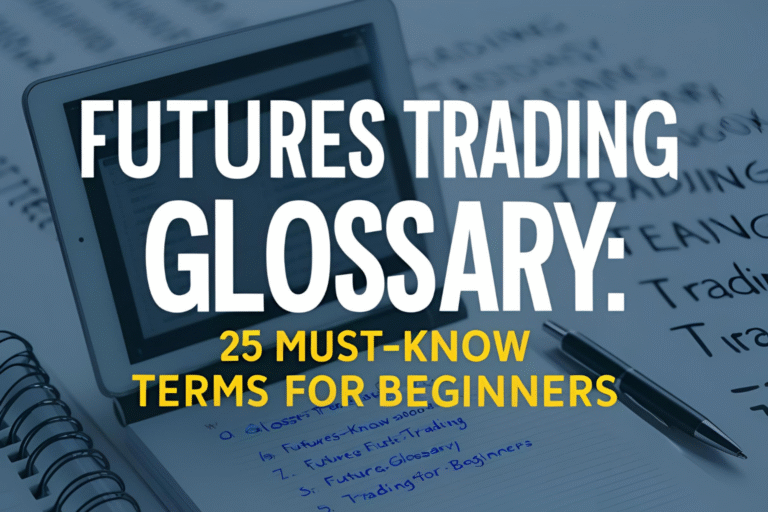Common Myths About Dow Futures Trading Debunked
Introduction
Have you heard that Dow futures trading is “too risky” or “only for experts”? These ideas may stop beginners from exploring futures markets—but most are based on misinformation. In this guide, we’ll uncover and debunk the most common Dow futures trading myths, so you can approach the market with clarity and confidence.
Myth #1: Dow Futures Are Only for Professional Traders
Truth:
Micro E-mini Dow futures (MYM) were introduced specifically for beginners and small-account traders. With smaller contract sizes and lower margin requirements, anyone can start with proper guidance and education.
Myth #2: You Need a Lot of Capital to Trade Dow Futures
Truth:
While traditional E-mini contracts require higher margins, Micro contracts need far less—sometimes as low as $500–$1,000 depending on your broker. Futures offer accessibility to both large and small investors.
Myth #3: Futures Are More Risky Than Stocks
Truth:
Futures involve leverage, which increases potential gains and losses. But with proper risk management, like stop-loss orders and position sizing, trading futures can be controlled and strategic—just like stock trading.
Myth #4: You Can Only Trade During Stock Market Hours
Truth:
Dow futures trade nearly 24 hours a day, five days a week. This means you can trade based on global news and economic events—even after U.S. markets close.
Myth #5: It’s Too Complicated to Learn Futures
Truth:
Futures trading uses many of the same tools as stock trading—charts, indicators, trends, and price levels. With structured education and a demo account, beginners can learn at their own pace.
Myth #6: You Have to Hold Contracts Until Expiration
Truth:
Most futures traders never hold contracts to expiry. You can open and close a position anytime during trading hours—minutes, hours, or days later.
Myth #7: Futures Are Only for Day Traders
Truth:
Futures can be used for day trading, swing trading, or even hedging long-term portfolios. The flexibility makes them useful for various strategies.
Myth #8: It’s All Gambling
Truth:
Successful futures traders follow structured plans, analyze charts, manage risk, and continuously learn. It’s a skill-based process—not luck or guessing.
Myth #9: Futures Are Just for Speculation
Truth:
Futures originated as risk-management tools for hedging. Investors, fund managers, and institutions use Dow futures to hedge against market downturns.
Myth #10: Futures Don’t Apply to Beginners
Truth:
With access to Micro contracts, educational resources, and demo platforms, futures are more beginner-friendly than ever. Many traders begin with Micro E-mini Dow before progressing to larger contracts.
Conclusion
Believing in these Dow futures trading myths can prevent you from discovering a flexible and powerful market. While futures trading does require discipline and education, it’s not reserved for professionals. With the right tools and mindset, beginners can participate safely and successfully.
FAQs
Q1. Are Dow futures good for beginners?
Yes—especially Micro E-mini contracts, which are designed for smaller accounts and lower risk exposure.
Q2. Do I need a special license to trade futures?
No. You just need to open a futures-enabled account with a brokerage that supports CME products.
Q3. Can I practice Dow futures trading before going live?
Absolutely. Most brokers offer demo accounts with simulated trading environments.
Q4. Is it possible to trade Dow futures part-time?
Yes. Because they trade almost 24/5, you can fit trading around your schedule.
Q5. Where should I start if I want to learn more?
Begin with educational blogs, video tutorials, and a demo account to get hands-on experience safely.

